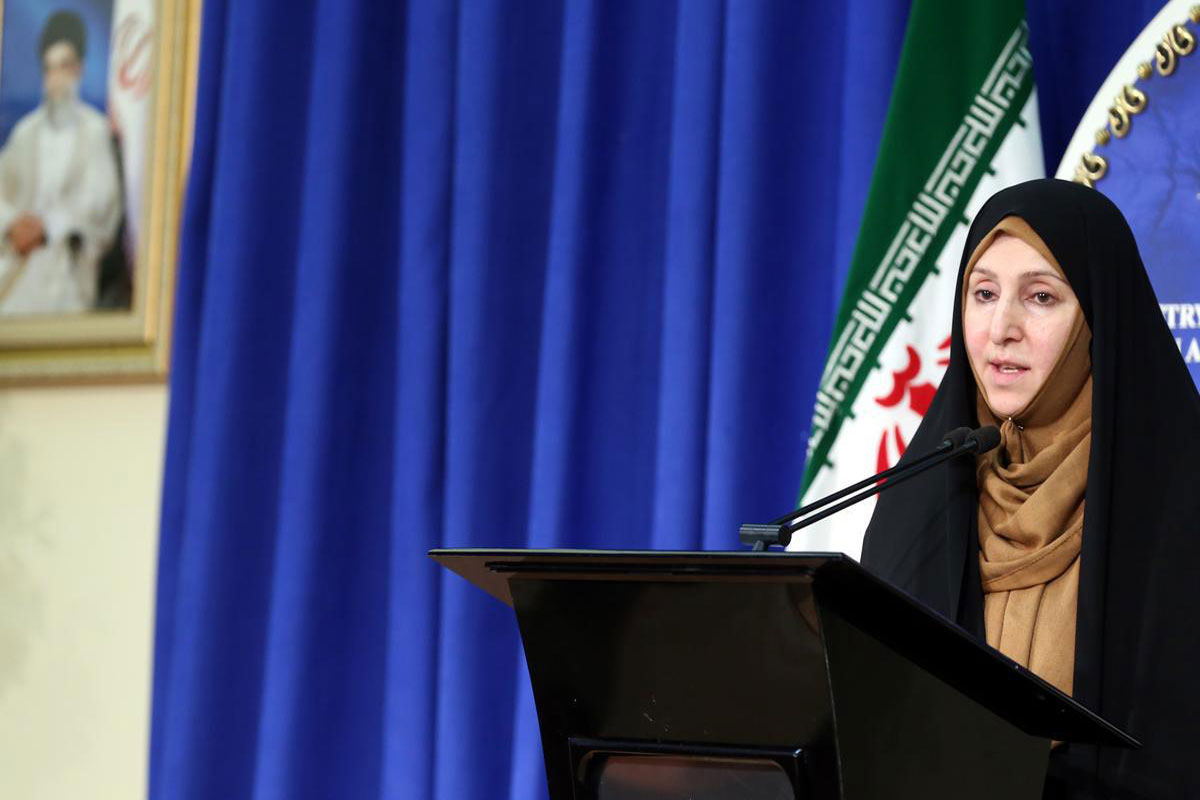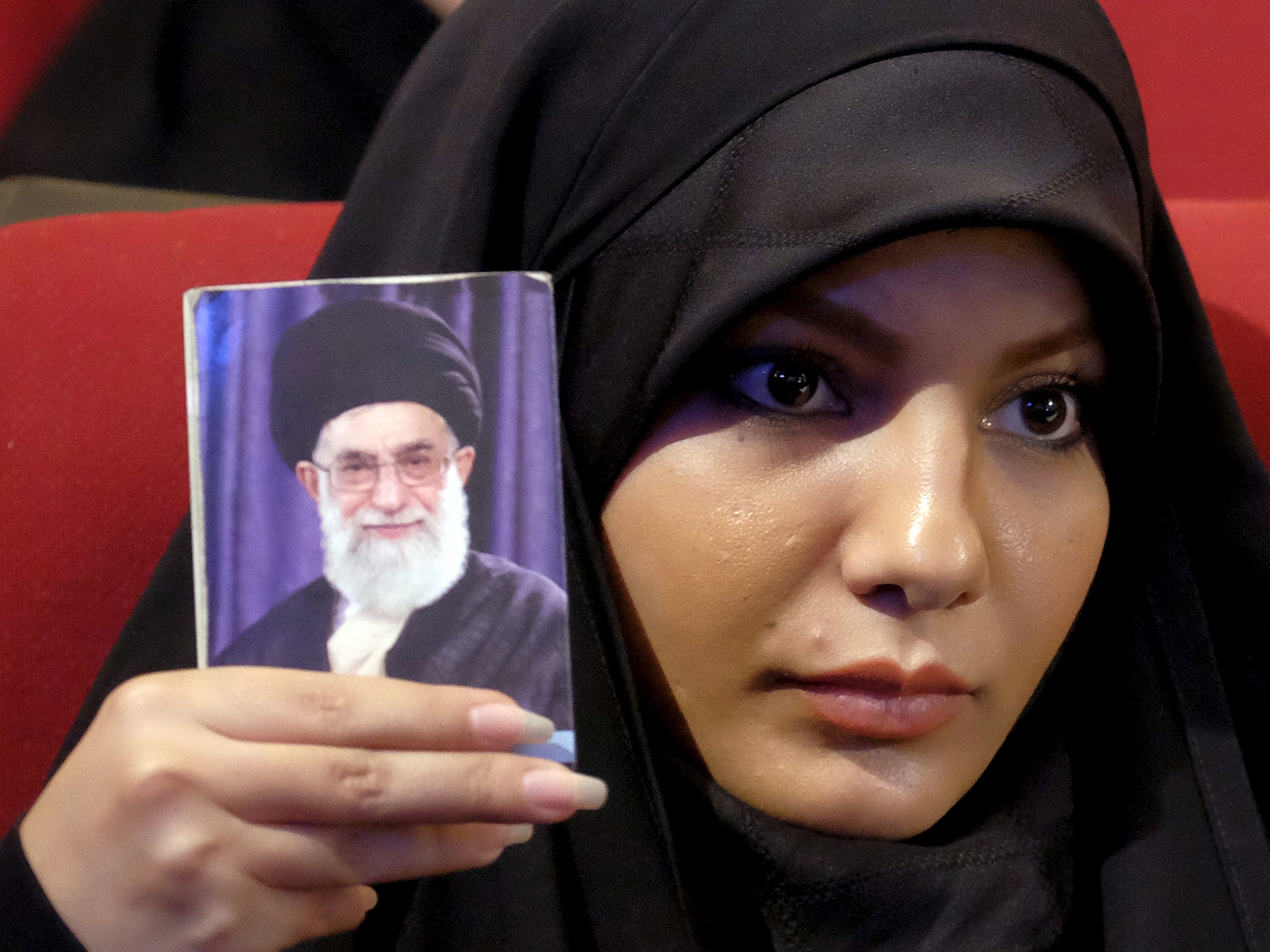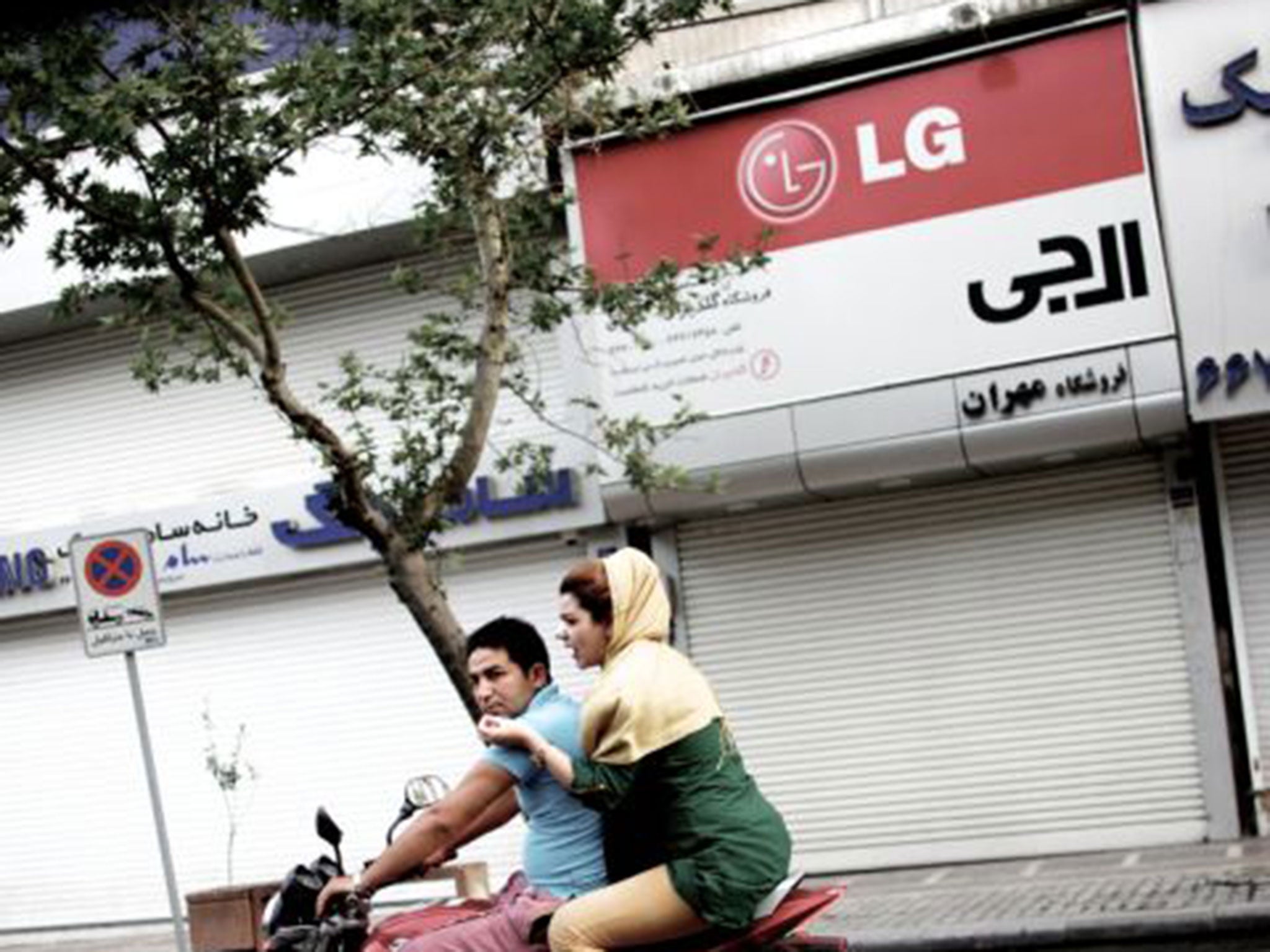Iran Sex: Understanding Intimacy And Social Norms In An Islamic Republic
Exploring the nuances of social life in Iran, especially when it comes to personal relationships and intimacy, can be quite a complex task for outsiders. Iran is officially an Islamic Republic, a fact that profoundly shapes nearly every aspect of daily existence, including how people view and practice intimate connections. This particular framework, you know, influences everything from public conduct to private interactions.
The country itself, a mountainous, arid, and ethnically diverse land located in southwestern Asia, maintains a rich and distinctive cultural and social continuity that reaches back through centuries. This deep historical background, actually, often blends with more recent legal and religious guidelines, creating a unique societal fabric. Understanding this blend is pretty important when discussing any aspect of Iranian life, including personal relationships.
So, when people talk about "Iran sex," they are often referring not to explicit details, but rather to the broader societal context surrounding intimacy, marriage, and gender roles within this very specific cultural and legal environment. It’s about, in a way, how personal lives are lived and understood under the watchful eye of an Islamic governance system, between the Caspian Sea in the north and the Persian Gulf and the Gulf of Oman in the south.
- Sophie Rain Leaked Nudes
- 124 Squid Game Death
- Bomb Iran Vince Vance
- Net Worth Of Jojo Siwa
- Christopher Walken Net Worth
Table of Contents
- The Official Stance and Legal Frameworks
- Cultural Norms and Societal Expectations
- Historical Context and Shifting Social Codes
- Media and Discourse on Intimacy
- Challenges and Realities of Relationships
- Addressing Misconceptions About Iran
- Frequently Asked Questions
The Official Stance and Legal Frameworks
The official position of the Iranian state on relationships and intimacy is, as you might expect, deeply rooted in Islamic jurisprudence. This means, actually, that laws and regulations are derived from interpretations of Sharia law, which guide personal conduct in a very significant way. These guidelines shape what is permissible and what is not, particularly concerning interactions between men and women.
Marriage in Iran: Permanent and Temporary Unions
Marriage is, in fact, the only legally recognized form of intimate relationship in Iran. There are two main types of marriage recognized under Iranian law: permanent marriage (da'em) and temporary marriage (mut'ah or sigheh). Permanent marriage is, quite obviously, the traditional, lifelong commitment that most people think of. It involves a formal contract and typically carries with it a set of rights and responsibilities for both spouses.
Temporary marriage, or sigheh, is a bit different, and it's something that often sparks a lot of discussion outside of Iran. This type of union is for a specified period, which could be anything from a few hours to several years, and it has a predetermined dowry. The purpose of sigheh, as stated in Islamic law, is to legitimize relationships that might otherwise be considered illicit, thereby preventing sin. It's used, apparently, for various reasons, sometimes for travel, sometimes for short-term companionship, or even, arguably, to provide a legal framework for relationships that wouldn't fit into the permanent marriage model. While legal, its social acceptance and use can vary widely among different segments of society, and it often carries a certain social stigma for women.
- The Enigmatic Journey Of Theo James A Star In The Making
- Neuro Gum Net Worth
- Aishah Sofey Erome
- Eliza Leaks
- Haircuts For Straight Hair Men
Public Conduct and Modesty Guidelines
Public conduct in Iran is also very much governed by principles of modesty and segregation, especially between genders. This means, in a way, that public displays of affection are generally not permitted, and there are specific dress codes, particularly for women, that require covering the hair and body. These rules are, basically, meant to uphold public morality and prevent what is considered inappropriate behavior. The enforcement of these rules can vary, though, depending on the region and the specific circumstances, but the underlying expectation of modest conduct remains.
The idea is to create an environment where public interactions are respectful and do not lead to temptation. So, for example, even simple things like hand-holding between unmarried couples in public spaces might be frowned upon or even lead to official warnings. This emphasis on public modesty contrasts sharply with norms in many Western countries, which is something visitors often notice very quickly.
Sharia Law's Influence on Personal Life
The influence of Sharia law extends deeply into the personal lives of Iranians, dictating not just marriage but also inheritance, divorce, and even, in some respects, the very structure of family life. This means, quite simply, that the legal system is intertwined with religious principles, which can be a little different from secular legal systems. The interpretations of these laws can, therefore, affect individual freedoms and choices, particularly for women, in ways that are perhaps not immediately obvious to those unfamiliar with the system.
For instance, divorce laws tend to favor men more, and there are specific legal requirements for women to initiate divorce proceedings. These legal frameworks, naturally, shape the landscape of intimate relationships and family dynamics, creating a distinct social environment where personal decisions are often made with an awareness of these broader legal and religious boundaries.
Cultural Norms and Societal Expectations
Beyond the formal laws, Iran is also shaped by a rich tapestry of cultural norms and societal expectations that have evolved over centuries. These unwritten rules, you know, often guide daily interactions and personal decisions just as much as, if not more than, the official statutes. They are deeply embedded in the collective consciousness of the people.
Family Values and the Importance of Marriage
Family is, without a doubt, the cornerstone of Iranian society. The family unit is held in extremely high regard, and maintaining family honor and reputation is very important. Marriage, therefore, is not just a personal union but also a significant social event that brings two families together. It's often seen, actually, as a duty, a way to continue the family line and ensure social stability. So, the pressure to marry, especially for young people, can be quite strong.
This emphasis on marriage means that relationships outside of marriage are generally not condoned, and in many cases, are considered taboo. The expectation is that intimate relationships should occur within the confines of a legally and religiously sanctioned union. This strong family orientation influences everything from dating practices (which are often very discreet) to the living arrangements of young adults, who typically live with their parents until marriage.
Public Versus Private Spheres of Life
One of the most striking aspects of Iranian society is the clear distinction between public and private life. In public, people generally adhere strictly to the rules of modesty and decorum, and interactions between genders can be somewhat reserved. However, in private spaces, within homes and among trusted friends and family, the atmosphere can be very different, much more relaxed and open.
This duality means that while public displays of intimacy are rare, private gatherings can be lively and expressive. It's in these private settings, apparently, that many personal relationships develop and thrive, away from the gaze of official scrutiny. This contrast is, in some respects, a coping mechanism for many Iranians, allowing them to navigate the strict public norms while still enjoying a rich personal life. It's a subtle dance, really, between adherence and adaptation.
Evolving Dynamics, Especially Among Younger Generations
Despite the deeply entrenched traditions and strict regulations, Iranian society is not static. There are, for example, noticeable shifts in attitudes and behaviors, particularly among the younger generations. These young people, who have grown up with access to the internet and global media, are often seeking more personal freedoms and different types of relationships than their parents or grandparents did.
This means that while traditional values still hold sway, there's a growing desire for more autonomy in choosing partners and shaping personal lives. Dating, though often unofficial and very discreet, does happen, and young people find ways to connect through social media and private gatherings. This evolving dynamic is, arguably, one of the most interesting aspects of contemporary Iranian society, showing a quiet push for change within the existing framework.
Gender Roles and Expectations
Gender roles in Iran are, typically, quite defined, with men traditionally seen as providers and protectors, and women as nurturers and homemakers. However, this is also an area where changes are very much visible. Women in Iran have, for instance, made significant strides in education and professional fields, and their presence in universities and workplaces is quite substantial. This has led, naturally, to a re-evaluation of traditional roles within families and society at large.
While the expectation for women to marry and have children remains strong, there is also a growing recognition of their contributions outside the home. This shift, you know, influences how relationships are formed and how couples negotiate their roles within a marriage. It’s a slow but steady transformation, reshaping what it means to be a man or a woman in Iran today.
Historical Context and Shifting Social Codes
To really grasp the present situation regarding social codes and intimacy in Iran, it helps to look back a little. The country has, after all, a very long history that predates the current Islamic Republic. Before the 1979 Islamic Revolution, Iran experienced periods of significant Western influence, which, in a way, led to different social norms and public behaviors. For example, during the Pahlavi era, there was a greater degree of social liberalization, and public interactions between men and women were, arguably, less restricted.
The Islamic Revolution, however, fundamentally reshaped the social and moral codes of the nation. It introduced, quite dramatically, a system based on Islamic principles, which included stricter dress codes, gender segregation in public spaces, and a re-emphasis on traditional family values. This shift was, in fact, a profound transformation that impacted every facet of life, including the way personal relationships were perceived and regulated. Understanding this historical context is pretty important for making sense of the current social landscape, as it explains how certain norms became established and how they continue to be enforced, or sometimes, challenged.
Media and Discourse on Intimacy
How the topic of intimacy and relationships is discussed, or not discussed, in Iranian media and public discourse is also very telling. Official media channels, like state television and newspapers, generally adhere to the strict moral guidelines of the Islamic Republic, which means explicit discussions of "sex" are virtually non-existent. Instead, the focus is typically on the sanctity of marriage, family values, and appropriate conduct.
Taboo and Coded Discussions
Because of these restrictions, the topic of sex, and even intimate relationships outside the very narrow official narrative, is largely considered taboo in public discourse. This means, actually, that when such topics are touched upon, they are often done so in very coded or indirect ways. For example, films or literature might use metaphors or subtle hints to convey themes of love, desire, or marital challenges, rather than addressing them directly.
This creates a situation where real conversations about intimacy often happen in private settings, among trusted individuals, rather than in public forums. It's a bit like, you know, having a hidden language for certain sensitive subjects. This silence in public media can, in some respects, contribute to a lack of open information and education on these matters for many young people.
Internet and Social Media's Impact
The rise of the internet and social media has, however, introduced a new dimension to this discourse. Despite official censorship and filtering, many Iranians, particularly the younger demographic, access a vast array of information and perspectives online. This means, quite simply, that they are exposed to different ideas about relationships, intimacy, and personal freedoms that are not present in official media.
Social media platforms have, for example, become informal spaces where people can discuss personal topics, share experiences, and even form relationships, often bypassing traditional gatekeepers. This access to global content and alternative viewpoints is, arguably, slowly but surely influencing attitudes and expectations, even if public expression of these changes remains limited. It's a quiet revolution, in a way, happening in the digital space.
Challenges and Realities of Relationships
The gap between the official legal framework and the realities of everyday life in Iran is, perhaps, one of the most significant challenges people face when it comes to relationships and intimacy. While laws and cultural norms dictate a certain path, human desires and societal changes often create a very different lived experience. This means, quite literally, that many individuals find themselves navigating a complex landscape of expectations versus personal aspirations.
The Gap Between Official Laws and Everyday Life
There is, in fact, a noticeable difference between what is officially sanctioned and what actually happens on the ground. For instance, while dating is not officially recognized or permitted, young people do find ways to meet and form relationships, often through social gatherings, university connections, or online platforms. These relationships exist in a sort of gray area, often kept private from family and authorities.
This duality creates a dynamic where people learn to adapt and find loopholes within the system. It’s a very common experience, you know, to live one way in public and another in private. This constant negotiation between adherence to rules and the pursuit of personal happiness is a defining feature of modern Iranian life, particularly concerning intimate matters. It requires a lot of discretion and, sometimes, a bit of ingenuity.
Impact on Youth and Personal Choices
The strict social environment can have a particular impact on Iranian youth. They are, for example, often caught between the traditional expectations of their families and the more modern influences they encounter through global media and peer groups. This can lead to internal conflicts and challenges in making personal choices about relationships and their future.
Many young people, apparently, aspire to more freedom in choosing their partners and defining their relationships, which can sometimes put them at odds with older generations or official guidelines. This tension is a significant aspect of contemporary Iranian society, shaping individual life paths and, in some respects, contributing to ongoing societal discussions about change and tradition. Learn more about on our site, and link to this page .
Addressing Misconceptions About Iran
It's very easy for outsiders to form misconceptions about Iran, especially when it comes to personal and intimate matters. The images often portrayed in international media can, after all, be quite limited or even sensationalized. It’s important to remember that Iran is not a monolithic society; it is an ethnically diverse country with a wide range of viewpoints and experiences.
So, for instance, while official laws are strict, the actual application of these laws and the daily lives of Iranians can vary significantly depending on factors like geography, socio-economic status, and individual family values. Not everyone experiences life in the same way, and there's a rich tapestry of personal stories and adaptations. Understanding this diversity is pretty crucial for forming a more accurate picture of life in Iran and avoiding oversimplifications.
For more detailed information on the legal framework surrounding marriage and family in Iran, you might want to look into resources that discuss Islamic law and its application in the country. For example, academic papers or reports from reputable organizations often provide a deeper insight into these complex topics. This can help clarify some of the intricacies involved. You can find more information here.
Frequently Asked Questions
Here are some common questions people often have about social norms and relationships in Iran:
What are the general rules for public interaction between men and women in Iran?
Generally, public interactions between men and women in Iran are quite reserved. Public displays of affection are not allowed, and there are expectations for modest dress, particularly for women who must wear a hijab and loose clothing. This is, in some respects, to maintain public decorum, and it's something visitors notice very quickly.
Is dating permitted in Iran?
Officially, dating in the Western sense is not permitted in Iran, as intimate relationships are expected to occur within the framework of marriage. However, young people do find ways to meet and form relationships discreetly, often through social circles or online, though these activities are usually kept private. It's a bit of a nuanced situation, really.
What is "Sigheh" and how does it relate to relationships in Iran?
"Sigheh," also known as temporary marriage, is a legal form of marriage in Iran that has a specified duration and dowry. It's meant to legitimize relationships that are not permanent, and it's used for various reasons, from short-term companionship to travel. While legal, its social acceptance can vary, and it's, arguably, a complex topic for many within Iranian society.
- Leanne Morgan Journey Concert
- Emily Compagno Children
- Was The Shah Of Iran A Good Leader
- Bomb Threat At Atlanta Airport Today
- Two Babies And One Fox

Sex Femme Iran - Daily Sex Book

Iran Girls Sex Irani Hot Girl Hd Wallpaper | Hot Sex Picture

Free Iran Sex - Amauter Gay